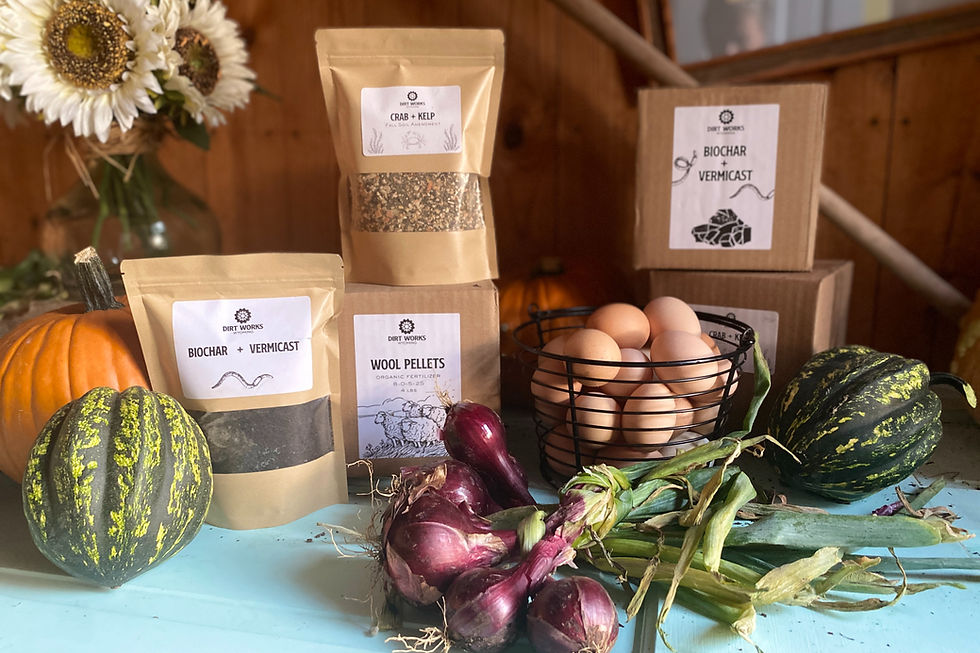Fall Soil Care
- Caitlin Youngquist

- Aug 22, 2025
- 2 min read
Updated: Oct 13, 2025
Soil is a living system and must be fed and nourished just like us. The worms and microbes in the soil need time to work and break down the organic nutrients into a form that plants can use. By feeding them in the fall, your soil will be healthier and your spring chores will be easier.
Fall is also the best time to build and fill new raised beds, or start a new sheet mulch garden.
Carbon is the driver of the soil system and Wyoming soils are very low in carbon. Fortunately, this is an easy problem to solve!
Key Fall Soil Care Practices
1. Clean Up, But Not Too Much
Remove diseased plants but leave as much healthy plant debris as you can. Cut off the tops of larger plants like peppers, corn, and squash and leave the roots in the ground to decompose and feed the worms.
The soil system needs fuel in the form of carbon, and dead plants are one of the best sources (and they are free).
2. Add Compost
Spread 1-2 inches of compost across your garden and landscape. The nutrients in compost will be available in the spring when it's time to plant. Compost is also great for the lawn.
If you till your garden, add compost and other amendments after harvest and then incorporate with the tiller. Mulch with at least 2 inches of wood chips, chopped leaves, straw, alfalfa hay, wool, etc.
If you have a no-till garden, spread compost in the areas you will be planting next year and incorporate with a shovel or hand trowel. Cover with plenty of mulch!
3. Add Organic Fertilizers and Amendments
Our Blue Collar Compost is a great source of nutrients and active carbon. Active carbon feeds the soil microbes that feed your plants. Biochar provides stable "forever" carbon for the soil. It can very quickly improve soil structure (less compaction and erosion), and improves the ability of your soil to hold water and nutrients for the plants.
Biochar and compost used together provide plant nutrients, active carbon, and stable carbon - a serious boost for your soil!
If you are building or rejuvenating raised beds or struggling with soil that is difficult to work with, try biochar and wool in the fall. Both of these are outstanding sources of carbon. Crab meal provides chitin - a source of calcium and phosphorus that also has unique disease fighting characteristics.
5. Mulch for Food and Shelter
Never leave your soil bare! Mulch feeds the worms and microbes, saves valuable water, keeps the soil cool in the summer, and discourages weeds. Use wood chips, alfalfa hay, straw, wool, grass clippings, chopped leaves, burlap, etc.












Comments